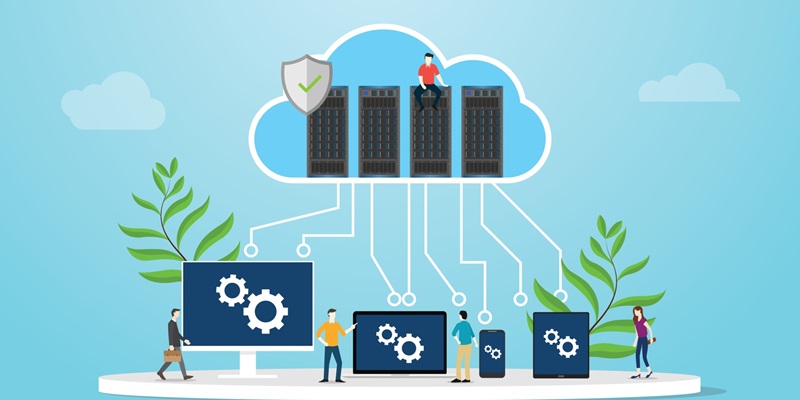In today’s rapidly advancing digital era, cognitive cloud computing has emerged as a game-changer, combining the power of artificial intelligence (AI) and cloud computing to process and analyze vast amounts of data stored in the cloud. This innovative technology holds tremendous potential for various industries, and in the realm of sustainable agriculture, its role is increasingly crucial. This article explores the multifaceted ways in which cognitive cloud computing is revolutionizing the agricultural landscape to foster sustainable practices.
The Role of Cognitive Cloud Computing in Sustainable Agriculture
Precision farming techniques have gained significant traction in recent years, and cognitive cloud computing is at the heart of this transformation. By leveraging AI algorithms and real-time data, it enables farmers to make informed decisions about irrigation, fertilization, and pest control. Analyzing weather patterns, soil conditions, and crop health, cognitive cloud computing provides farmers with the insights they need to optimize resource allocation and enhance yield while minimizing environmental impact.
Improved Crop Health and Management
With cognitive cloud computing, farmers have access to sophisticated early warning systems that operate through predictive analytics. By analyzing historical data and current conditions, AI algorithms can detect potential risks such as disease outbreaks, pest infestations, or adverse weather events. Armed with this knowledge, farmers can take proactive measures to mitigate these risks and protect their crops, ensuring better overall crop health and management.
Efficient Water Resource Management
Water scarcity is a pressing concern in agriculture, making efficient water resource management a top priority for sustainable farming. Cognitive cloud computing plays a significant role in addressing this challenge by continuously monitoring soil moisture levels, weather patterns, and crop water requirements. By analyzing this data and incorporating predictive models, AI algorithms can optimize irrigation schedules, delivering the right amount of water to crops at the right time. This improved efficiency not only conserves water but also helps prevent waterlogging and nutrient leaching.
Revolutionizing Supply Chain Management
The impact of cognitive cloud computing extends beyond the farm by revolutionizing supply chain management in sustainable agriculture. By optimizing logistics and reducing food waste, it facilitates a more efficient and environmentally-friendly flow of agricultural products. Advanced analytics capabilities enable precise forecasting and demand planning, ensuring that perishable goods reach their destinations promptly while minimizing spoilage and reducing carbon footprints. Additionally, cognitive cloud computing enhances traceability, enabling consumers to make better-informed choices about the origin, production methods, and sustainability of the food they consume.
Facilitating Knowledge Sharing and Collaboration
Collaboration and knowledge sharing among farmers are integral to advancing sustainable agriculture. Cognitive cloud computing acts as a catalyst in connecting farmers, facilitating the exchange of ideas, best practices, and innovative techniques. By joining virtual networks and leveraging AI-powered platforms, farmers can learn from each other’s experiences and adopt sustainable farming practices more rapidly. This collective wisdom and collaboration drive the transformation towards a more sustainable future.
As the world grapples with the challenges of climate change and a rapidly growing population, sustainable agriculture has become imperative. Cognitive cloud computing, with its fusion of AI and cloud computing technologies, is proving to be a game-changer in this endeavor. By enhancing precision farming techniques, improving crop health and management, optimizing water resource utilization, revolutionizing supply chain management, and promoting collaboration, it opens up new avenues for sustainable practices in agriculture. Embracing cognitive cloud computing is not just a technological shift, but a vital step towards ensuring food security, mitigating environmental impact, and building a sustainable future for generations to come.

